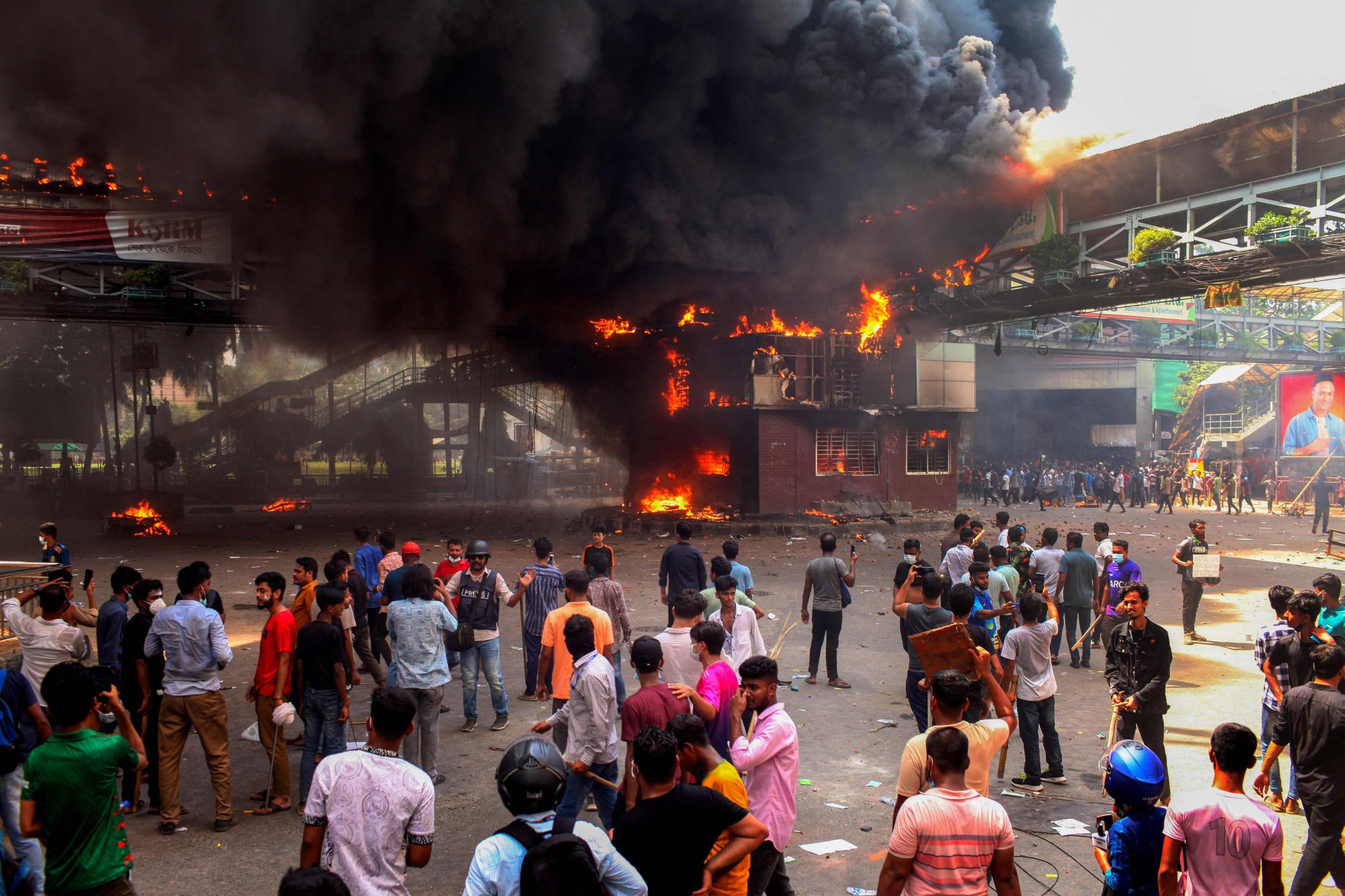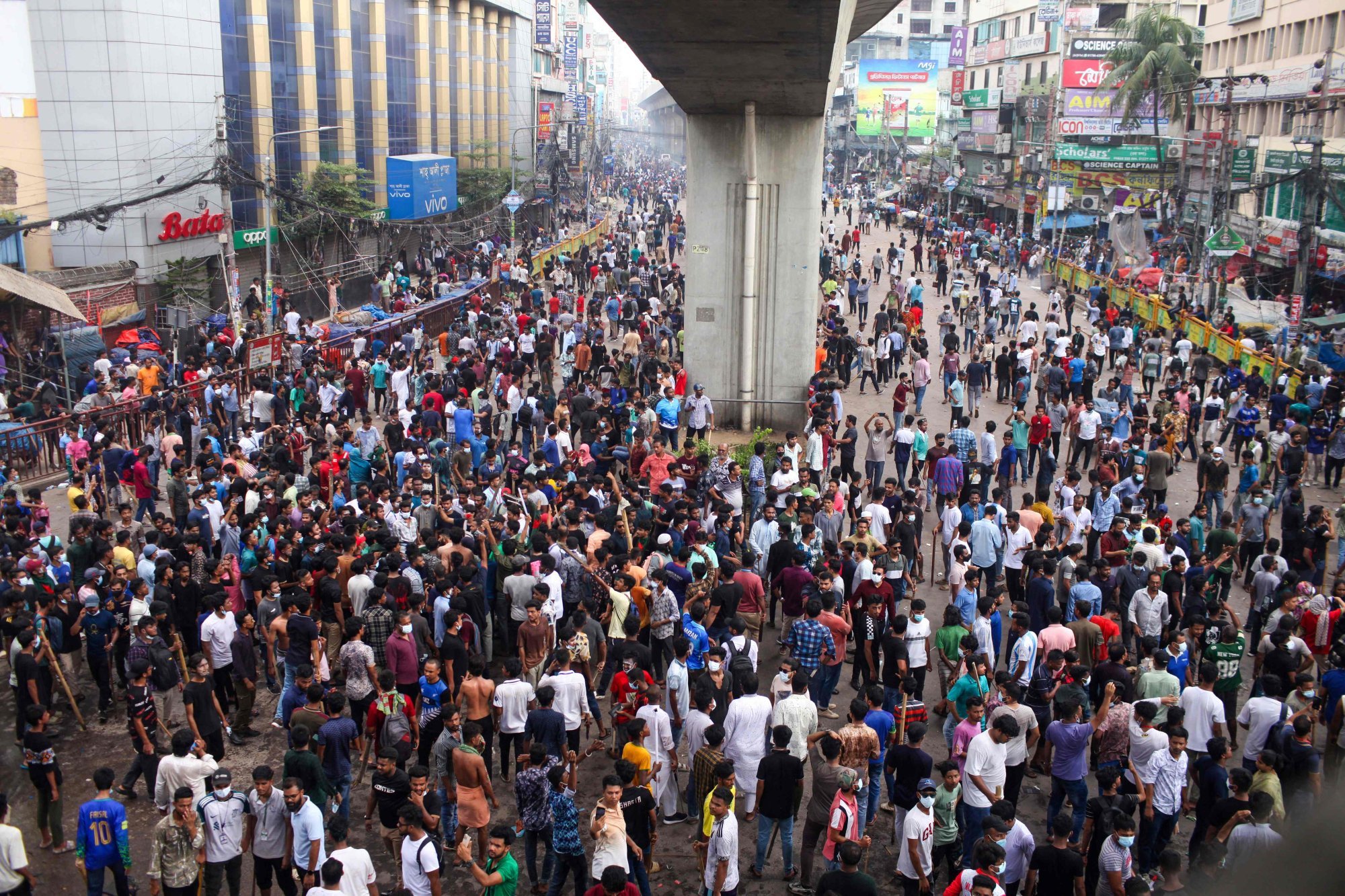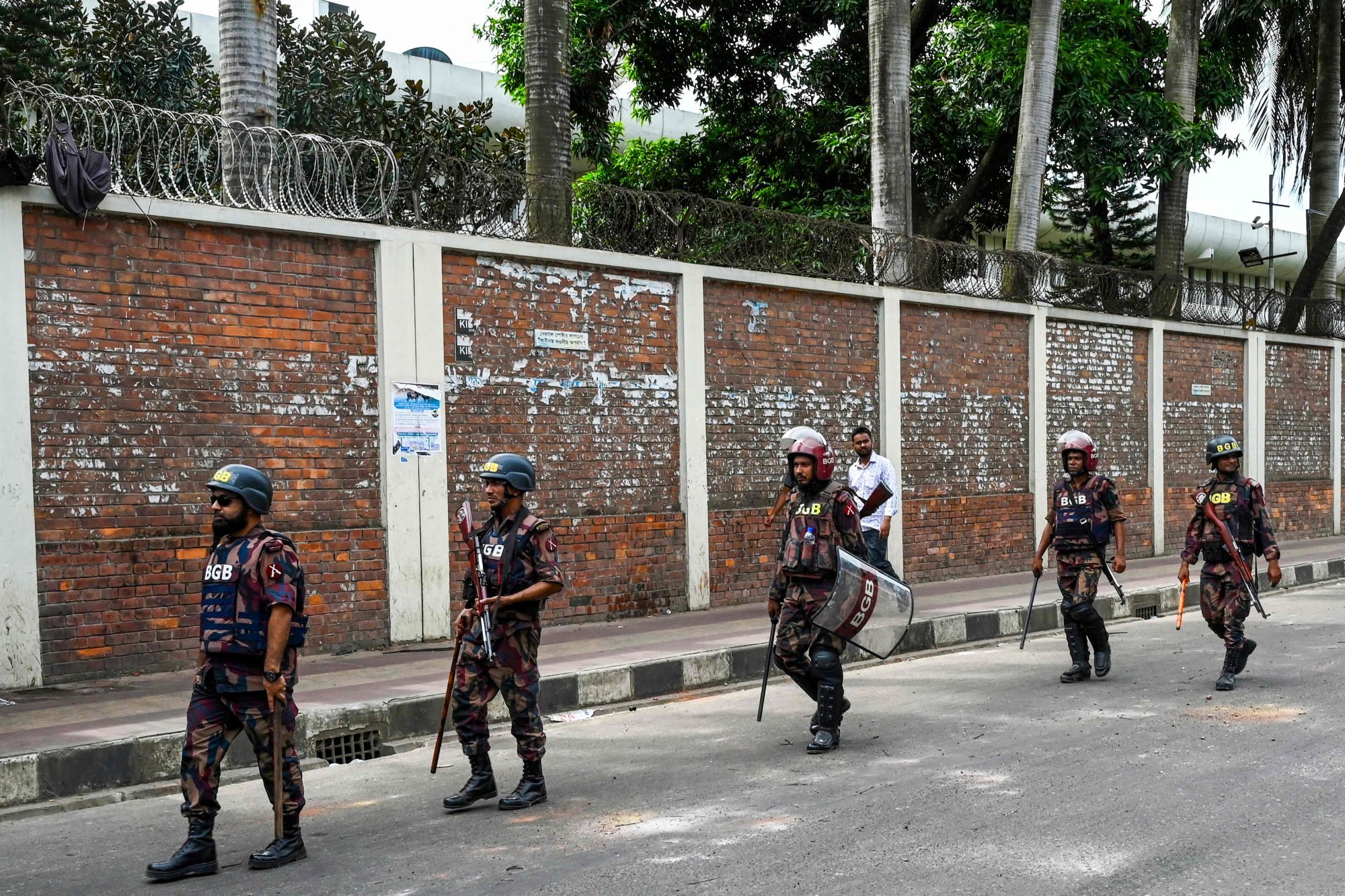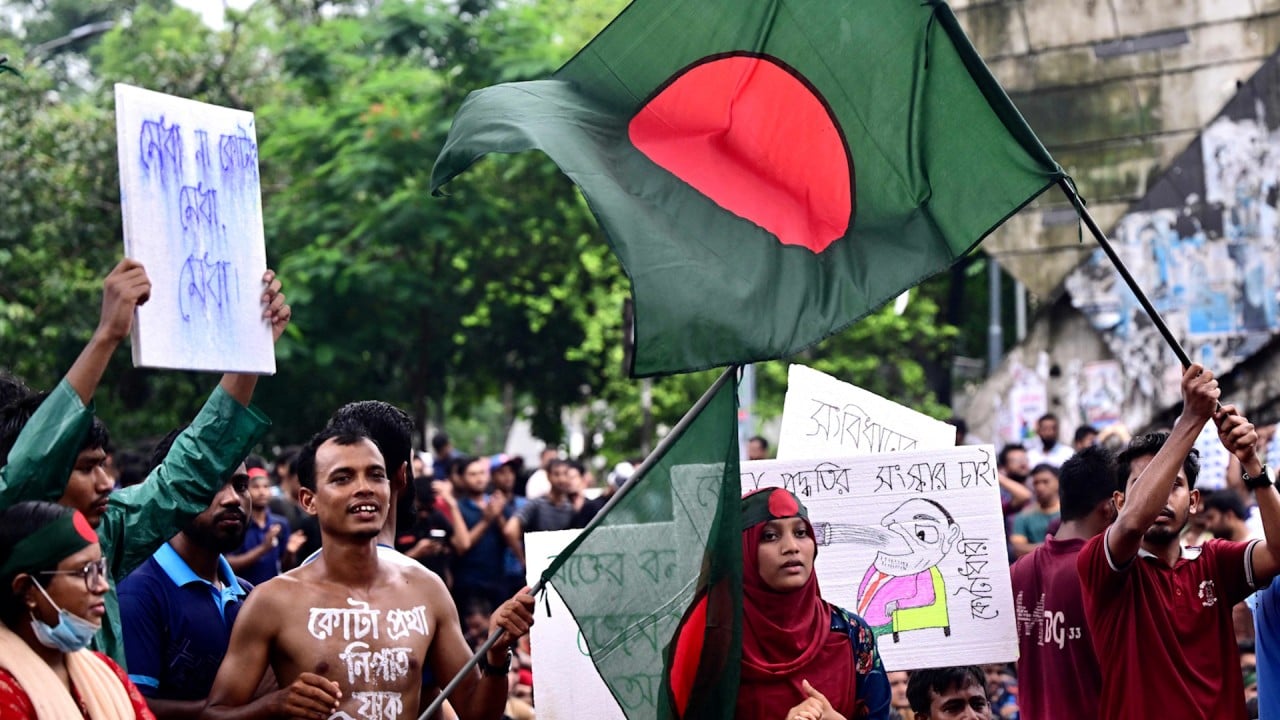Three dead in renewed student protests in Bangladesh due to telecommunications disruptions: “It is a war”

“I appeal to all leaders, activists and common people to stand by these soft-hearted students, provide them all possible support and take this movement forward,” Tarique Rahman, the exiled incumbent leader of the main opposition Bangladesh Nationalist Party (BNP), posted on the social media platform X.
He added that numerous opposition leaders, activists and protesting students had been arrested in an effort to give the movement a “political face.” Reuters was unable to confirm his statement on the arrests, however.
Friday’s deaths were reported on the English-language website of the Bengali newspaper Prothom Alo, but without giving further details. It also said that train services had been suspended nationwide as protesters blocked roads and threw bricks at security officials.
Reuters could not immediately confirm the reports.
Police used tear gas to disperse protesters in some areas where renewed violence had broken out, Reuters journalists reported, while security forces and demonstrators crowded the capital Dhaka, where traffic was light on Friday, a weekly holiday in the Muslim-majority country.

A Reuters witness said a protest rally had been called for 08:00 GMT in front of the main mosque.
The nationwide unrest, the biggest since Prime Minister Sheikh Hasina’s re-election this year, is fuelled by high unemployment among young people, who make up nearly a fifth of the country’s 170 million population.
But some analysts say the violence is now also being triggered by broader economic problems such as high inflation, rising unemployment and dwindling foreign exchange reserves.
The protests have opened up old and sensitive political divides between those who fought for Bangladesh’s independence from Pakistan in 1971 and those accused of collaborating with Islamabad.
Among the former is Hasina’s Awami League party, which labelled the protesters “Razakar”, a term used to describe independence-era collaborators.

The Internet and international phone calls were down on Friday, while the websites of several Bangladeshi newspapers were not updated and social media was also inactive.
A Reuters journalist said some voice calls had gotten through but neither mobile data nor broadband was available, adding that even text messages had not been transmitted.
News channels and the state broadcaster BTV were switched off, but entertainment channels were broadcasting as usual, he said.
Some news channels displayed a message blaming technical problems and promising to resume programming soon.
However, as aviation website Flightradar24 showed, there were no flight disruptions at the main international airport.
The official websites of the Central Bank, the Prime Minister’s Office and the police were apparently hacked by a group calling itself “THE R3SISTANC3”.
“Operation HuntDown, stop killing students,” read the identical message on the websites, adding in red letters: “This is no longer a protest, this is now war.”
Thursday’s violence in 47 of Bangladesh’s 64 districts left 27 people dead and 1,500 injured, the newspaper Prothom Alo reported. The French news agency AFP put the death toll at 32, citing a police spokesman.
Reuters had reported 13 deaths, compared to six deaths earlier in the week, but could not immediately confirm the higher number.

The protesters are demanding that the government stop reserving 30 percent of public jobs for the families of those who fought for independence from Pakistan.
Bangladesh’s Supreme Court has set August 7 as the date for hearing an appeal by Hasina’s government against a high court decision last month to reinstate the quota system that was abolished in 2018. It has stayed the lower court’s decision pending the hearing.
On Thursday, the government said it was ready to talk to the protesters, but they refused, saying: “Talks and opening fire do not go hand in hand.”




